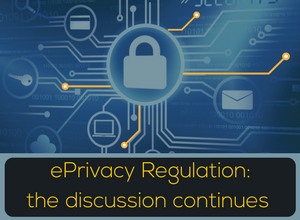The negotiations on the ePrivacy Regulation are in full swing. In order to respect the ambitious timeline proposed by the Commission, the European Parliament is already in an advanced stage of the internal discussion and the Council is getting ready to further move forward the dossier.
The Developers Alliance has been following the debate since the very beginning. We have raised our concerns on several occasions and stressed them after seeing the latest news coming from the European Parliament. In the latest drafts, the Parliament shows a clear intention of strengthening certain aspects of the ePrivacy proposal creating new obstacles to the adoption of ads-based business models. This is bad for European business and devastating for our developer members.
We fear that this approach fails to recognize the importance of the data-driven ecosystem for the European digital economy and, for this reason, we sent a letter to MEPs calling on them to re-evaluate the content of the proposal and adopt a more business friendly approach, that supports small companies and software developers’ business models and market choices.
We also organised, in partnership with IAB Europe, a Tech Policy Roundtable in the European Parliament. The event, co-hosted by MEP Boni and MEP Dalton, brought together interested parties from the industry and representatives from the EU Institutions, European Data Protection Supervisor and Data Protection Authorities.
Photos: Tech Policy Roundtable – The Impact of the Proposed ePrivacy Regulation on the Data-Driven Ecosystem, June 20th, European Parliament
Participants agreed that businesses and, especially, consumers, will benefit from a more balanced framework which values privacy but also gives the right importance to technological development and innovation.
To achieve such balance, the EU Institutions should, first of all, focus on fully harmonising the legal instruments regulating data management and data protection. The General Data Protection Regulation (GDPR), the Directive on Security of Network and Information Systems (NIS) and the revised Electronic Communications Code (EECC) will ensure a very high level of protection, making additional legislation unnecessary.
The Institution should also avoid imposing further restrictions to the collection and processing of communication data and metadata. The risk is that such constraints would prevent the execution of basic communication services, functions and features, and hinder the development of emerging tech such as applied Artificial Intelligence, Machine-to-Machine and Internet of Things.
Finally the proposed rules on the use of processing and storage capabilities of terminal equipment should be reconsidered. Those obligations not only risk to destroy the ad-based business model, that is essential for software developers to scale-up their businesses, but it will also fail in giving more control to users. The multiplication of requests for consent will be detrimental to the users’ experience and will reduce trust in digital businesses and their services.
data-animation-override>
““The proposed rules particularly affect companies like ours, which do not use the meta data gathered in any marketing related manner. Furthermore, after we present the final product to the owner of the website/application (our client) we then proceed to deleting the data, as we no longer have the need for it after delivering our reports.””
The Alliance represents an incredibly vibrant, successful and innovative sector, that should be allowed to thrive and bring further data innovation in an open environment. Unfortunately, we believe that the ePrivacy Regulation will not provide the right kind of regulatory framework to future-proof the existing privacy rules and risks jeopardising the success of our digital startups and continued innovation.
MICHELA PALLADINO
Director, European Policy & Government Relations























